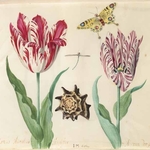The Dutch Republic. Laboratory of the Scientific Revolution
DOI:
https://doi.org/10.18352/bmgn-lchr.7116Keywords:
History of ScienceAbstract
Historians agree about the significance of the Scientific Revolution for the development of modern society; there is little agreement, however, as to the nature and the causes of this major shift in our perception of the natural world. In this article, it is argued that we may profit from studying this problem in the context of the Dutch Republic during the seventeenth century, the Republic being in many ways a laboratory of modern life. In this article, three factors often mentioned as contributing to the new scientific themes are explored in the Dutch context. The first factor dealt with is the mingling of scholars and craftsmen; the second the role of the universities as centers of both teaching and research, and the third the congruence of scientific and mercantile values in the early modern Dutch trading communities.
This article is part of the special issue 'The International Relevance of Dutch History'.
Downloads

Downloads
Published
Issue
Section
License
Authors who publish with this journal agree to the following terms:
a) Authors retain copyright and grant the journal right of first publication with the work simultaneously licensed under a Creative Commons Attribution 4.0 International (CC BY 4.0) that allows others to share the work with an acknowledgement of the work's authorship and initial publication in this journal.
b) Authors are able to enter into separate, additional contractual arrangements for the non-exclusive distribution of the journal's published version of the work (e.g., post it to an institutional repository or publish it in a book), with an acknowledgement of its initial publication in this journal.
c) Authors are permitted to post their work online (e.g., in institutional repositories or on their website) prior to and during the submission process.
Authors are explicitly encouraged to deposit their published article in their institutional repository.











